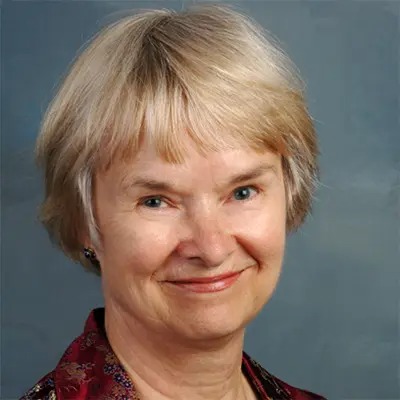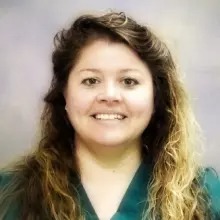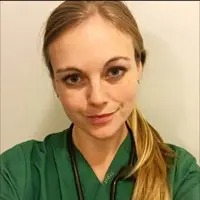Updates on Sterilization Recommendations - age, breed specifics, OVE vs OVH vs chemical implants
Species
Small Animal
Contact Hours
3 Hours - RACE Approval Pending
Early Booking Deadline
Sun, 14 July, 2024
Registration Deadline
Fri, 02 August, 2024
Language
English
Discipline
Behaviour
Internal Medicine – Endocrinology, Haematology, Infectious Diseases, Parasitology & Oncology
Reproduction / Theriogenology
Surgery
Toxicology & Pharmacology
Veterinary Partners
Global



Recorded: 27th June 2024
Panelists:
Lynette Hart BS, MA, PhD - UC Davis, USA
Michelle Kutzler BS, DVM, PhD, MBA, DACT - Oregon State University, USA
Ylva Winsborg DVM, GPCert(SAS) - University Of Copenhagen, Denmark
Moderator:
Gary England BVetMed, PhD, DVetMed, CertVA, DipRep, DACT, DECAR, FRCVS - University of Nottingham, UK
PANEL DISCUSSION DESCRIPTION
This panel discussion will delve into the evolution of surgical sterilization procedures for dogs and cats, since the inception in the 1930s. Initially, ovariohysterectomy was the primary method performed in females, with proposed benefits, along with population control, including a reduced risk of mammary neoplasia. Over time, there has been a shift towards pre-pubertal neutering with some preferring pre-pubertal ovariectomy, and laparoscopic ovariectomy and some have even considered the ovary-sparing hysterectomy. Furthermore, there have been significant advances in hormonal methods for long term sterilization, especially with the development of depot GnRH agonists.
However, research has highlighted that the benefits of these procedures may not be as straightforward as once believed, with potential associations with increased risks of non-reproductive neoplasia and increased joint disease in some dog breeds. The impact of neutering on the risk of urinary incontinence and development of obesity cannot be ignored. Given these complexities, veterinarians, breeders, owners, and shelter managers face challenges in making evidence-based decisions regarding the most effective sterilization methods and timing, especially considering the influence of animal breed on disease risks.
An esteemed international panel of world-renowned specialists will explore the benefits and risks of various sterilization procedures performed in dogs and cats, aiming to navigate the current evidence landscape, providing insights to guide clinical decision-making. Attendees will have the opportunity to engage with the panelists, asking questions and sharing their own experiences, fostering a collaborative and informed approach to achieving effective sterilization while prioritizing animal health.
Professor England is the Foundation Dean of the School of Veterinary Medicine and Science and is Professor of Comparative Veterinary Reproduction.
He is a Fellow of the Royal College of Veterinary Surgeons, and is recognised as a Specialist in Veterinary Reproduction by the Royal College and the European College of Animal Reproduction. He is a Diplomate of the American College of Theriogenologists and a Visiting Professor at the Royal Veterinary College, University of London.
Professor England was instrumental in developing a new veterinary curriculum at the University of Nottingham and is an advocate of innovation in teaching, learning and assessment.
Professor England's research interests are reproductive biology (particularly the interaction between sperm and the female reproductive tract, and the effect of environmental chemicals on fertility), canine behaviour (predominantly epidemiological modelling of behavioural tests) and colic in horses (he is part of the Nottingham Equine Colic Project Group which generates new evidence and recommendations on the recognition and assessment of colic and in collaboration with the British Horse Society produces the 'React now to beat colic' campaign).
Professor England uses psychosocial research methods to study evidence behind clinical decision making; he established the Centre for Evidence-based Veterinary Medicine at the University of Nottingham with Professor Malcolm Cobb and Professor Sir Peter Rubin.
More InfoDr. Lynette Hart is a professor of Veterinary Population Health and Reproduction Director of the Center for Animals in Society at the UC-Davis College of Biomedical Sciences.
More InfoDr. Michelle Kutzler is a native of Kent, Washington. She graduated from Washington State University with a Bachelor of Science and Doctor of Veterinary Medicine degree. After graduation, Dr. Kutzler worked in dairy practice in Minnesota for four years before going to Cornell University to pursue a theriogenology residency under the supervision of Dr. Vicki Meyers-Wallen and Dr. Rob Gilbert. Dr. Kutzler stayed on at Cornell University for a PhD under the tutelage of Dr. Peter Nathanielsz. Her thesis research investigated the effects of multiple courses dexamethasone on placental vascular blood flow in sheep. Dr. Kutzler also completed a Master in Business Administration in Organizational Leadership from Oregon State University.
Since 2002, Dr. Kutzler has been at Oregon State University in Corvallis, Oregon. Dr. Kutzler teaches numerous courses including Companion Animal Production, Equine Reproduction, Calving School, Mammalian Reproductive Biology, and Hormone Action. Dr. Kutzler also enjoys giving lectures to colleagues and lay audiences. She has published widely in the fields of both large and small animal theriogenology. Dr. Kutzler spends much of her day mentoring undergraduate and graduate research students.
Dr. Kutzler has been an active member of the Society for Theriogenology since 1994 and an active member of the American College of Theriogenologists since 1999. Within the ACT, Dr. Kutzler has served on the Scientific Abstract Committee and the Certifying Examination Committee. Dr. Kutzler is a member of the American Veterinary Medical Association and the AVMA Conference Content Coordinator for Companion Animal Theriogenology. Dr. Kutzler also holds positions in several small ruminant associations: American Association of Small Ruminant Practitioners (student chapter advisor, Region 4 Director, Treasurer), Llama Association of North America (President), and Alpaca Owners Association (membership committee). Dr. Kutzler is also on the Scientific Advisory Committee for the Alliance for Contraception in Cats and Dogs and the Chair of Scientific Committee for the Quadrennial International Symposium on Canine and Feline Reproduction, and the Director of Business Operation for the Oregon Women for Higher Education.
More InfoYlva Winsborg is a soft tissue surgeon at the University of Copenhagen, Denmark. She was born in Sweden and graduated from University of Copenhagen, Denmark in 2014. After graduation Ylva has been licensed and practised veterinary medicine in Denmark, Sweden, Norway and Iceland.
Surgery and teaching has always been two of her main passions and the combination constantly gives reason to think about how and why we perform different surgical procedures. During her career Ylva has also volunteered as a veterinarian in Nepal where the main focus was Rabies vaccination and spaying and neutering of dogs and cats for population control.
These different experiences have given Ylva a thorough insight into different cultural approaches and demands from the veterinary community in different types of societies.
More InfoQualified Vet
Online Panel Discussion
USD 110.00
Intern/Resident/PhD (Requires proof of status)
Online Panel Discussion
USD 80.00
Vet Nurse/Vet Tech (Requires proof of status)
Online Panel Discussion
USD 80.00
Veterinary Student (Requires proof of status)
Online Panel Discussion
USD 20.00
If the options you are looking for are unavailable, please contact us.
No tax will be added unless you are a UK taxpayer
Choose currency at checkout


















